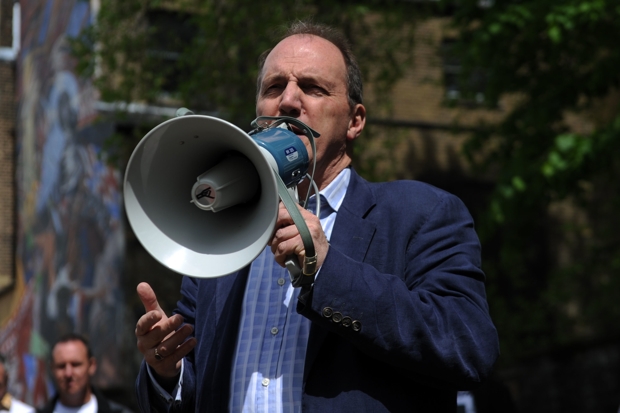The Liberal Democrat resilience in countless marginal seats has confounded many commentators. While perhaps winning half the number of votes as Ukip nationwide, it is far from inconceivable that they will win five to ten times the number of seats. Take Sutton & Cheam, for instance, where despite having a majority of just 1,608 votes, Paul Berstow seems all but certain to retain his seat.
This has, quite correctly, been attributed to the personal following of Lib Dem incumbents – and their ability to build an often robust local campaigning machine around their cult of personality. People of all sides of the political spectrum flock to banners, irrespective of their underlying party loyalty. And the parochial nature of this support also means that these local baronies are more immune to an electoral apocalypse brought on by national issues.
But as Liberal Democrat support often hinges on a popular local MP, when that individual departs, much of the support goes with it. Of the seven seats where Liberal Democrat incumbents retired in 2010, just three were, at least in form, held by the party (boundary changes affected the former Truro & St Austell seat) – two of which by wafer-thin margins. Nick Clegg’s team was stunned by Conservative Andrew Jones’ success in overturning the 10,429 majority for the departing Phil Willis.
Next week, however, ten new Liberal Democrat candidates will be fighting in seats where the incumbent is standing down, with just two regarded as having a truly realistic prospect of holding their ground: Lisa Smart in Hazel Grove (who may also enjoy the status of the only Liberal Democrat woman in the Commons) and Steve Bradley in Bath.
But it gets worse. Of the 25 new Liberal Democrat MPs elected in 2005 and 2010, now running for a second or third term, just nine are in seats psephologist Nate Silver expects the party to hold next week. While of the thirteen MPs elected in 1997 or earlier, who are running again this year, just three are currently projected to lose. The longer an MP has served, generally speaking, the greater their power of incumbency through casework, campaigns and local celebrity status. Moreover, the fact that the 2005 and 2010 elections saw a disproportionate number of Lib Dem gains against Labour means these seats are more vulnerable to the collapse of the party’s left-leaning vote.
And needless to say, if the longer-serving MPs are the most likely to survive, they are also the most likely to retire at a subsequent election. While Simon Wright, Jo Swinson and Stephen Gilbert, all still in their thirties, and all expected to lose, could have a lifetime of public service still ahead of them – if Simon Hughes wins in the Bermondsey seat he first won in 1983, can he really be expected to run for a further term? And given the party’s terrible record of holding seats with retiring incumbents, even when they were polling in the mid-20s, the prospect of success is not good.
Elections are meant to usher in a cohort of new blood to sustain political parties. For the Liberal Democrats, 2015 will do the opposite. It is not simply a question of how many seats are won, but who ends up being elected – a problem that perhaps poses a longer-term existential threat to the party than next Thursday’s expected electoral devastation.






Comments